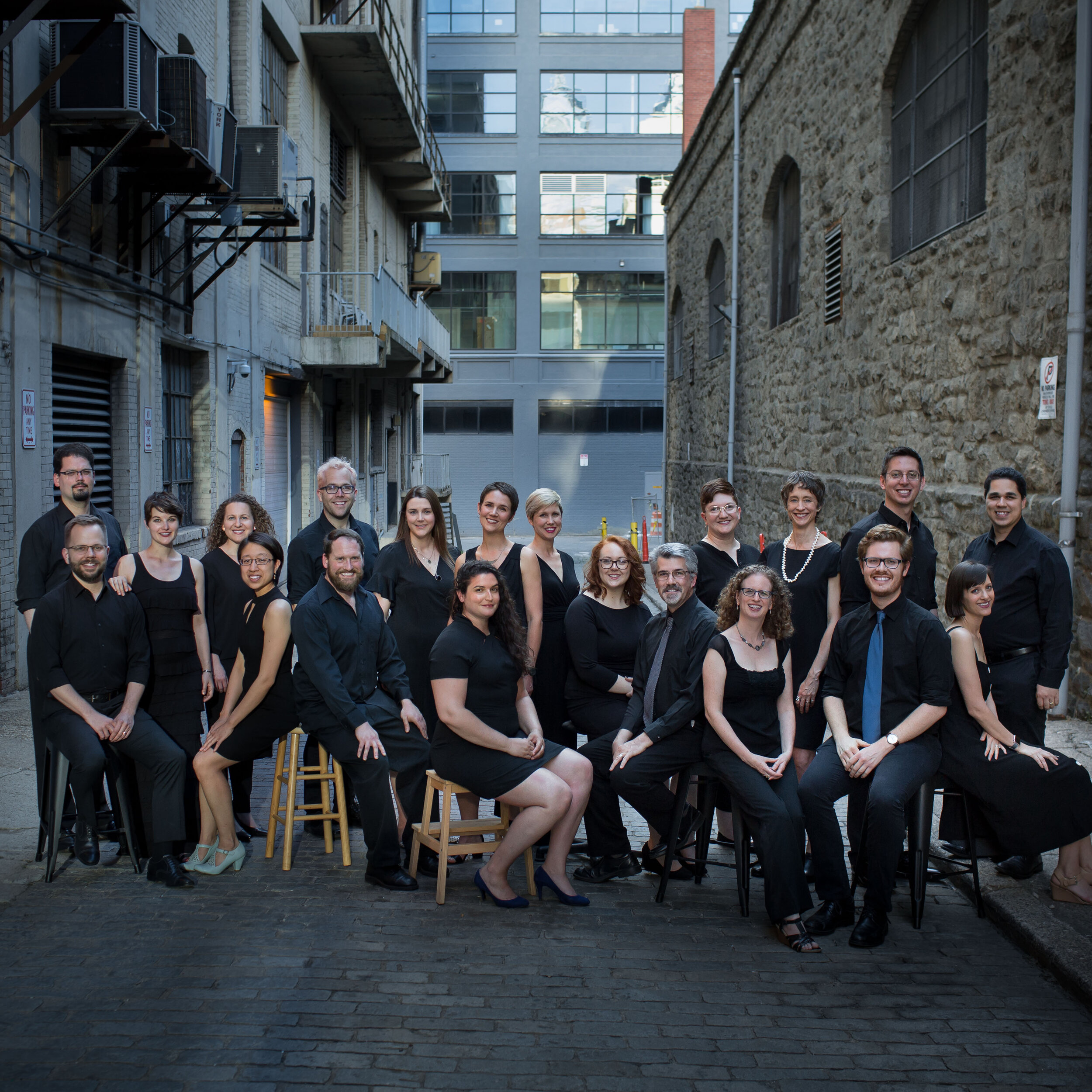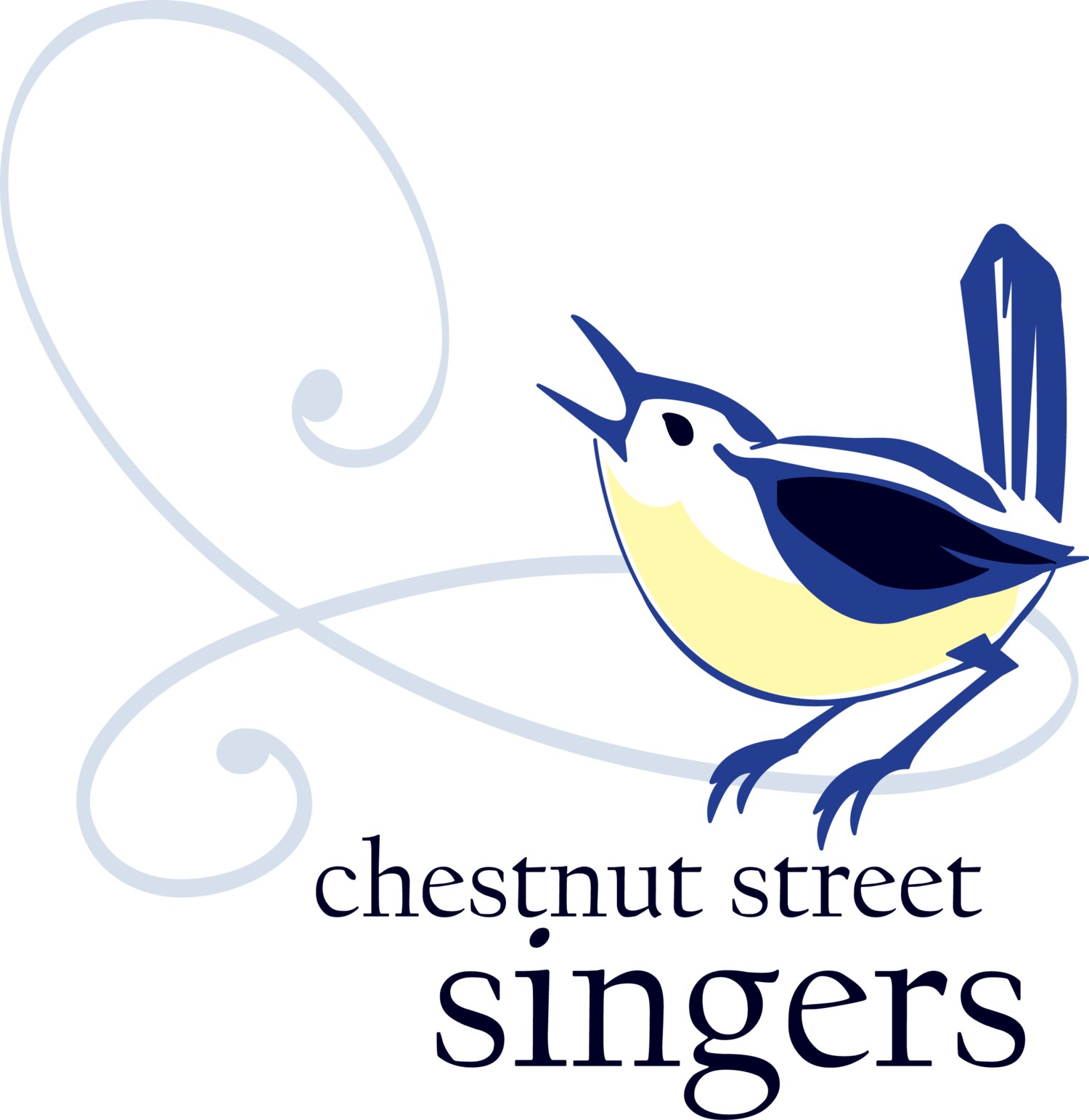
Concert Archives
2010-2024
Click on any concert to read more.
Or use the search tool to look up individual singers, composers, and repertoire.
-
2024
- Nov 23, 2024 We Build in Air Nov 23, 2024
- Apr 20, 2024 To the Brilliant Sky Apr 20, 2024
-
2023
- Dec 2, 2023 Ask the Winter Moon Dec 2, 2023
- Apr 29, 2023 The Passing of the Year Apr 29, 2023
-
2022
- Nov 19, 2022 Stand in That River Nov 19, 2022
-
2020
- Mar 6, 2020 – Mar 8, 2020 Always Singing Mar 6, 2020 – Mar 8, 2020
-
2019
- Nov 15, 2019 – Nov 17, 2019 World Without End Nov 15, 2019 – Nov 17, 2019
- Jun 1, 2019 – Jun 2, 2019 The Silent Forest Jun 1, 2019 – Jun 2, 2019
- Mar 15, 2019 – Mar 17, 2019 Behind Closed Doors Mar 15, 2019 – Mar 17, 2019
-
2018
- Nov 9, 2018 – Nov 11, 2018 We Who Believe Nov 9, 2018 – Nov 11, 2018
- Jun 1, 2018 – Jun 3, 2018 For Cherishing Jun 1, 2018 – Jun 3, 2018
- Mar 24, 2018 – Mar 25, 2018 Where the Truth Lies Mar 24, 2018 – Mar 25, 2018
-
2017
- Nov 18, 2017 – Nov 19, 2017 The Northern Wild Nov 18, 2017 – Nov 19, 2017
- Jun 3, 2017 – Jun 4, 2017 Mother Tongue Jun 3, 2017 – Jun 4, 2017
- Mar 25, 2017 – Mar 26, 2017 Divinity Breathed Forth Mar 25, 2017 – Mar 26, 2017
-
2016
- Nov 12, 2016 Search for Home Nov 12, 2016
- May 15, 2016 flourish: reckless hope rises May 15, 2016
- Jan 10, 2016 gather: in the stillness born Jan 10, 2016
-
2015
- Nov 1, 2015 fray: as shadows fall Nov 1, 2015
- May 17, 2015 As Birds Do Sing: A Fifth Anniversary Concert May 17, 2015
- Mar 14, 2015 – Mar 15, 2015 40 Voices Singing: Masterworks for Massed Choirs Mar 14, 2015 – Mar 15, 2015
-
2014
- Nov 9, 2014 The Elements of Song Nov 9, 2014
- Jun 1, 2014 As One Jun 1, 2014
- Mar 16, 2014 To Arms Mar 16, 2014
-
2013
- Nov 17, 2013 For Keeps Nov 17, 2013
- Oct 13, 2013 In His Care Oct 13, 2013
- Jun 2, 2013 Ahoy, Stranger! Jun 2, 2013
- Mar 10, 2013 Whither, Fairy? Mar 10, 2013
-
2012
- Nov 4, 2012 Sing, Muse! Nov 4, 2012
- May 6, 2012 Songs to the Midnight Sun May 6, 2012
- Mar 11, 2012 This Green and Pleasant Land Mar 11, 2012
-
2011
- Nov 6, 2011 Axis of Medieval Nov 6, 2011
- Jun 12, 2011 I Hear America Singing Jun 12, 2011
- Mar 20, 2011 The Food of Love Mar 20, 2011
-
2010
- Oct 24, 2010 Sex, Drugs, and Madrigals Oct 24, 2010
- Jun 6, 2010 Music to Hear Jun 6, 2010
Stand in That River
Stand in That River
Notes on the Program
I Worried
Mary Oliver
I worried a lot. Will the garden grow, will the rivers
flow in the right direction, will the earth turn
as it was taught, and if not how shall
I correct it?
Was I right, was I wrong, will I be forgiven,
can I do better?
Will I ever be able to sing, even the sparrows
can do it and I am, well,
hopeless.
Is my eyesight fading or am I just imagining it,
am I going to get rheumatism,
lockjaw, dementia?
Finally, I saw that worrying had come to nothing.
And gave it up. And took my old body
and went out into the morning,
and sang.
We live in uncertain times. The question of how we respond to a world full of upheaval is a deeply personal one. Perhaps we turn to acts of devotion, a plea to a higher power—or maybe we simply stand right where we are and remember that the sacred beauty around us, in our love for each other, and in our music, is enough. At least for now.
The Coolin
We open the program with an invitation. James Stephens’ poem begins with a flirtatious bid for a lover to come for a romantic picnic on a hillside. The pair’s enjoyment is suddenly interrupted by the recognition that it might not—or really can’t possibly—last forever. On this reckoning, the opening “Come with me” turns to a tender plea: “Stay with me.” Barber captures this tenderness in a softer and slower recapitulation of the piece’s opening melody.
Super flumina babylonis
This text is timeless. From its origin in the exile of the Jews in Babylonia in the 6th century BCE, to adaptations by contemporary pop musicians like Bob Marley and Leonard Cohen, Psalm 137 resonates as a profound question: How can we keep singing when we feel lost, displaced, and abused? Victoria’s setting is for two choirs, at times playfully handing phrases off to one another, at other times joined in chorus.
Yerushalayim Shel Zahav
Commissioned by the mayor of Jerusalem in 1967, Naomi Shemer’s song was written just three weeks before the Six-Day War broke out, while Jews were still barred from entering East Jerusalem and the Old City. The last line of the chorus, “Behold, I am a violin for all [Jerusalem’s] songs,” is a stirring answer to Psalm 137’s central question. Even in times of exile and unrest, we carry the spirit of home in ourselves and in our songs.
Kasar mie la gaji
The inscription on Grau’s original score attributes the title phrase—the only text in this piece—to the people of the Sahel, a region in Africa that marks the transition between the Sahara desert to the north and the savannah to the south. Our own research suggests the text is a variation on a phrase from the Hausa language. Residents of the Sahel are frequently faced with food shortages, and in a changing climate, their struggle is worsening. Grau’s mournful, moanful music captures the lament of a people reckoning with a land that may not sustain them much longer, and what that means for their future.
O frondens virga
Given that she lived 900 years ago, Hildegard’s enduring presence in the cultural zeitgeist is remarkable. Her plainchant compositions lend themselves, in their stark simplicity, to all manner of contemporary embellishment. We begin with the chant in unison, accompanied by shruti box (ours is named Tutti Shruti, by the way). The last line of the chant spins out into independent, disjointed meditation, as we each find our own higher power to invoke in our plea to save us from “the wicked habits of our age.”
O Oriens
When composer Melissa Dunphy attended one of our recent rehearsals, she told us she continued to discover profound meaning in this text’s climactic phrase, “sol justitiae,” typically translated as “sun of righteousness,” but just as correctly interpreted as “sun of justice.” Dunphy realized that the piece had taken on new meaning in our current setting as being explicitly antifascist. Like the Hildegard chant, which is echoed in the plainchant foundation of “O Oriens”, the text is timeless and universal, taking on new meaning in the context of modern challenges.
Stand in That River
We begin the second half of the concert with one possible response to the challenges posed in the first half. In the face of worry, we can choose to simply stand where we are and meditate on the beauty around us and within us. Though the second half is largely centered on the natural world, each text remains open to individual meaning-making.
In Beauty May I Walk
These words, translated from a Navajo prayer, are another deeply personal invocation, an appeal to find meditation and wholeness in the surrounding landscape. The central, repeated melody feels incomplete and fragile—perhaps like the text’s speaker—and only feels fulfilled when in the context of the harmony that grows to surround it.
Locus Iste
Bruckner’s beloved motet was composed for the dedication of a chapel in the New Cathedral in Linz, Austria. While the text explicitly names God, the ambiguous locale in the opening phrase—“This place was made by God”—leaves the interpretation open to honor whatever space feels sacred and perfect to the reader.
Silence and Music
Ursula Wood’s fantastic poem names all the ways in which nature, and its wild forces, tell the earth’s story. Its last stanza expands on this message in two profound ways: that we singers contain all the multitudes of nature’s power in our music, and that all silence carries the potential for music to rise out of it. Vaughan Williams’ setting of Wood’s poem was dedicated “to the memory of Charles Villiers Stanford and his Blue Bird,” whose conceit of a soprano melody soaring over the other parts in homophony, will sound familiar within Vaughan Williams’ richly textured piece.
The Blue Bird
Although much of Stanford’s oeuvre fell out of favor in his declining years, “The Blue Bird” remained consistently popular in the immediate aftermath of World War I, with the quiet rejoicing of the text—“the sky above was blue at last”—made more poignant by the memory of darker days during the war. The poem functions here as another meditation on stillness in nature, recalling Ursula Wood’s message that it contains the potential for all meaning and emotion to arise from it.
Loveliest of Trees
John Chorbajian’s music is relatively unknown, and seldom performed, and we don’t really know why! He writes beautifully for mixed voices, which makes it easy for us to settle into the message of A.E. Housman’s poem, a tender echo of our opening piece, “The Coolin”: we are only here for a little while, and we really can’t know what the future will bring, so let’s go out and find some beauty while we can.
